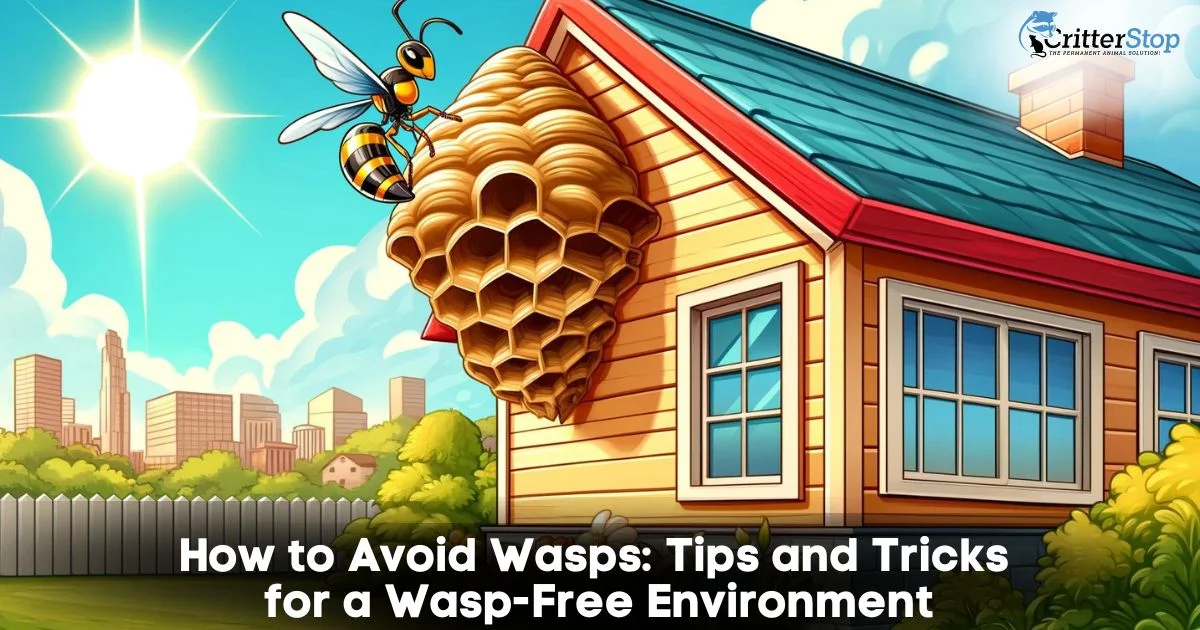
Wasps can be a nuisance during outdoor activities, especially in the summer months. While certain individuals might not find them bothersome, others may have an allergic reaction to their sting. It's important to know how to avoid wasps to prevent an unpleasant encounter.
One way to avoid wasps is to be aware of their nesting areas. Wasps commonly construct their nests in protected spots like eaves, attics, and tree branches. If you spot a nest on your premises, it's advisable to enlist the expertise of a professional for its removal. Additionally, if you're planning to have an outdoor event, make sure to check the area for any nests beforehand.
Another way to avoid wasps is to keep food and drinks covered. Wasps are drawn to sweet and sugary substances, so it's important to keep these items covered to avoid attracting them. If you're having a picnic or outdoor barbecue, consider using mesh food covers or keeping food in sealed containers. This will not only help prevent wasps, but also other insects such as flies.
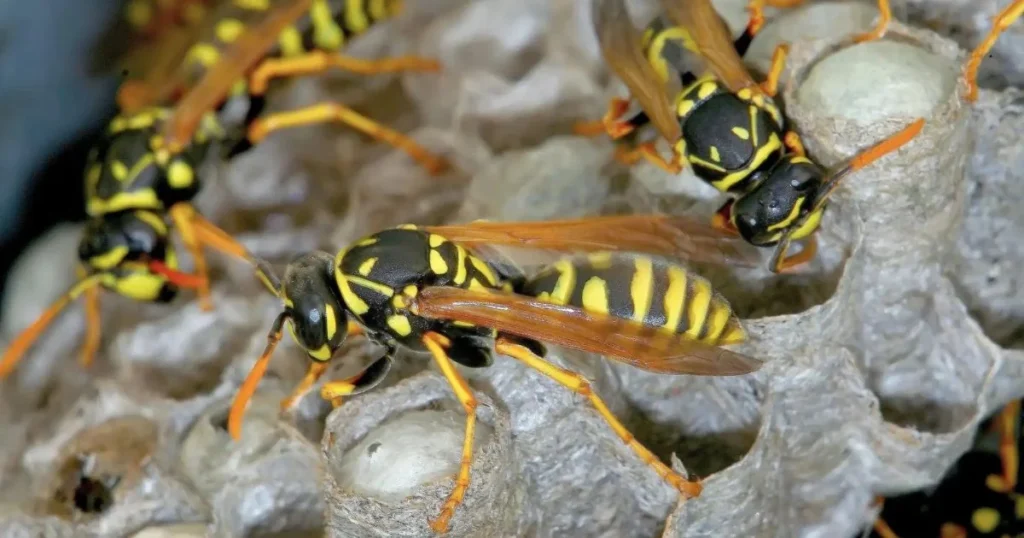
Wasps are recognized for constructing their nests in diverse spots like trees, shrubs, eaves, and attics. The size, shape, and whereabouts of the nest may differ based on the species of wasp. For example, paper wasps build umbrella-shaped nests that hang from branches or eaves, while yellow jackets build nests in the ground or in wall voids.
It's crucial to understand that wasps can display aggression when their nests are disturbed, thus it's advisable to refrain from approaching or disrupting a nest. If you suspect a wasp nest on your property, it's recommended to reach out to a professional pest control company to safely handle its removal.
There are several factors that can attract wasps to your property. One of the most common factors is the availability of food. Wasps are attracted to sweet, sugary foods and proteins, thus, it's important to store and dispose of your food and garbage properly.
Another factor that can attract wasps is the presence of water. Wasps require water for survival, hence they might be drawn to locations with stagnant water, like bird baths or pools.
Finally, wasps may be attracted to areas with shelter, such as attics or sheds. If you're facing a wasp infestation in your residence, it's crucial to identify and seal off any entry points to deter their entry.
Overall, understanding the nesting habits and factors that attract wasps can assist you in implementing preventive measures to deter them. Maintaining cleanliness on your property, eliminating food and water sources, and sealing potential entry points can lower the risk of a wasp infestation.
One highly effective method to prevent wasps from entering your home is by sealing all conceivable entry points. This includes cracks in walls, gaps in windows and doors, and any other openings that may allow wasps to enter. You can utilize caulk or weather stripping to seal these areas. It's important to check these areas periodically to ensure that they are still sealed.
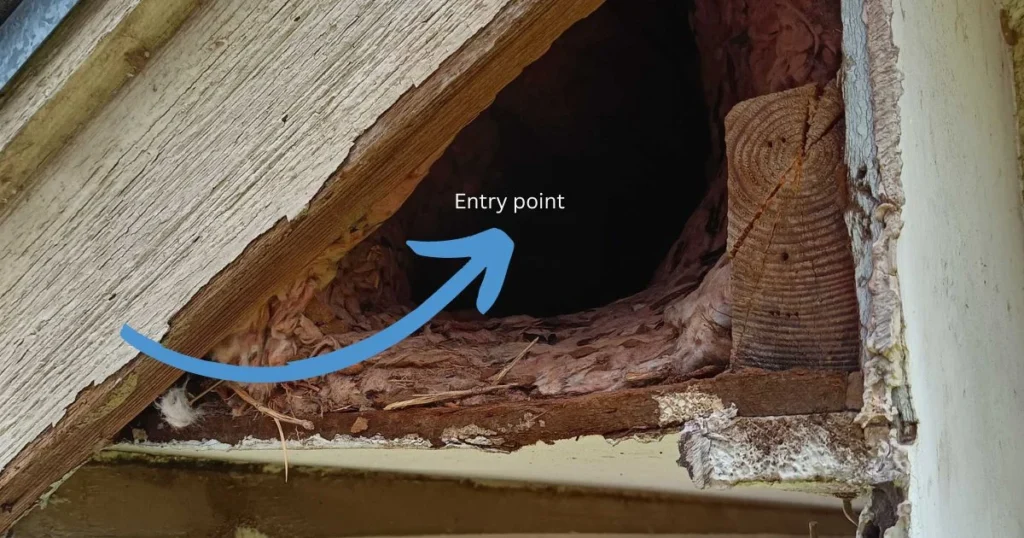
Wasps are attracted to sweet smells and food, thus, it's vital to maintain cleanliness in your home and keep it free of food debris. This involves promptly cleaning up spills and crumbs, storing food in airtight containers, and regularly disposing of garbage. Make sure to clean your outdoor eating areas as well, including your grill and patio furniture.
In addition to keeping your home clean, you can also use deterrents to keep wasps away. Hanging fake wasp nests or using wasp traps can help to deter wasps from building nests near your home. Nevertheless, it's important to acknowledge that these methods may not guarantee 100% effectiveness and should be used in conjunction with other preventive measures.
By sealing entry points and maintaining cleanliness, you can greatly reduce the likelihood of wasps entering your home. These straightforward actions can assist in maintaining your home wasp-free and provide peace of mind during the summer months.
There are various natural deterrents available to keep wasps and bees at bay. These include:
It's important to recognize that while natural deterrents can be effective, they may not be effective in all situations. It is also important to use these deterrents safely and to avoid any allergic reactions.
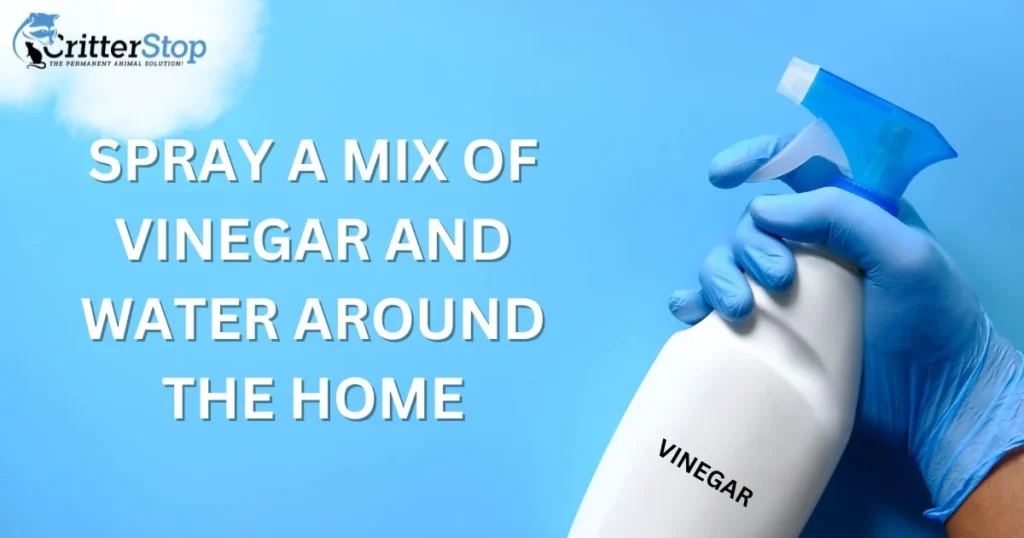
Chemical solutions can also be used to repel wasps and bees. Some commonly used solutions include:
When using chemical solutions, it's crucial to carefully follow the instructions and ensure safe usage. Additionally, it's important to be aware that certain chemical solutions may harm other insects or animals, so it is important to use them responsibly.
Overall, there are a number of natural and chemical repellents that can be used to keep wasps and bees away. Choosing the appropriate repellent for the situation and to use it safely to avoid any negative effects.
Proper garden maintenance is an essential step in preventing wasps from nesting in your outdoor space. Wasps are attracted to overgrown vegetation, so it's important to keep your garden tidy and well-maintained. Regularly mow your lawn, trim hedges, and remove any dead or decaying plants.
Additionally, planting certain herbs and flowers can help repel wasps. Mint, basil, thyme, and lemongrass are all natural wasp deterrents. Planting these herbs in your garden or in pots around your outdoor area can aid in keeping wasps at bay.
Proper waste disposal is another crucial step in preventing wasps from nesting in your outdoor space. Wasps are enticed by sweet and sugary materials, so it's important to keep your outdoor area free of food waste and garbage.
Make sure to dispose of all food waste in sealed containers and keep your garbage cans tightly closed. Rinse out any empty soda cans or bottles before recycling them. Moreover, if you possess a compost bin, ensure to keep it distant from your outdoor living space.
Regularly cleaning your outdoor space and removing any standing water can also help prevent wasps from nesting. Wasps are attracted to water sources, so make sure to empty any bird baths or other water containers regularly.
By following these simple landscaping and outdoor management tips, you can help prevent wasps from nesting in your outdoor space and enjoy a pest-free summer.
If you've observed a wasp nest on your property, it's important to handle it with care. Here are some ways to deal with existing nests:
Removing a wasp nest can be dangerous, so it's important to take precautions. Wear protective attire, like long sleeves and pants, gloves, and a hat. Cover your face with a mask or veil. Approach the nest slowly and carefully, and avoid making sudden movements. Use a pesticide spray designed for wasp nests, and spray it directly into the entrance of the nest. Wait for a few hours before removing the nest, as some wasps may still be alive.
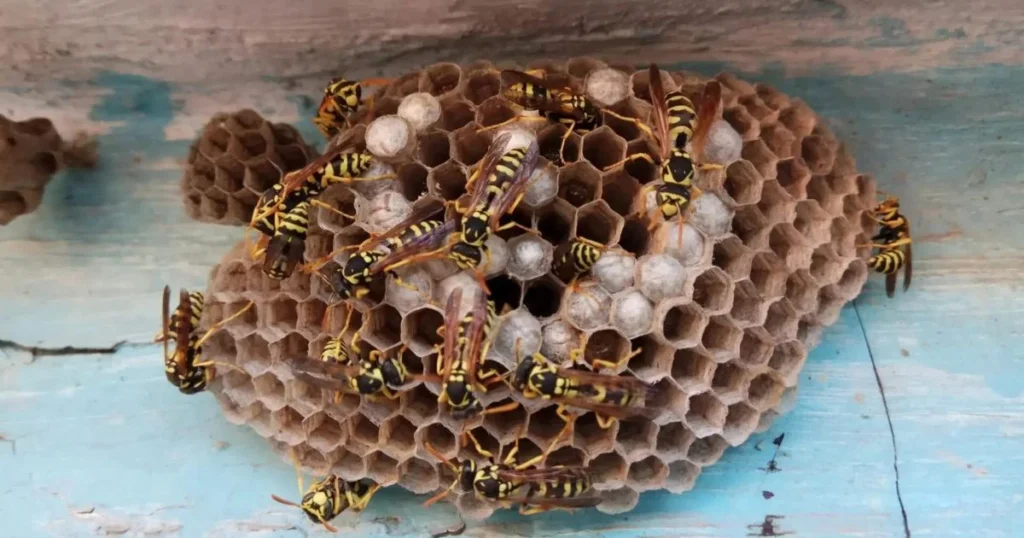
Once you've removed a wasp nest, it's important to take steps to prevent them from coming back. Here are some tips:
Seal any cracks or gaps in your home's exterior, as wasps can use these as entry points.
Keep your garbage cans sealed and away from your home, as wasps are attracted to food.
Trim any overgrown shrubs or trees near your home, as wasps like to build nests in these areas.
Consider installing a fake wasp nest, as this can deter wasps from building a nest in the same area.
By adhering to these suggestions and taking the required precautions, you can safely remove a wasp nest and prevent them from coming back.
Professional Pest Control
If you're not comfortable removing the nest yourself, or if the nest is in a hard-to-reach area, consider hiring a professional pest control service. They have the experience and equipment to safely remove the nest without putting you or your family at risk.
Critter Stop is a professional pest control service that can help you deal with wasp nests on your property. We use products that are safe for you and your family, and our team of experienced professionals will remove the nest quickly and efficiently. Contact us at (214) 234-2616 to get more information!
Wasps can enter your home through small openings in windows, doors, and walls. They are attracted to sweet smells and food, thus, it's crucial to maintain cleanliness and tidiness in your home. Additionally, installing screens on windows and doors can prevent wasps from entering.
The best way to prevent wasp nests from coming back is to promptly remove them upon noticing. Additionally, you can utilize insecticides to eliminate any remaining wasps and deter their return. Regularly inspect your property for indications of new nests and promptly remove them.
You can deter wasps from nesting in your vicinity by eliminating food sources and sealing off any openings in your home. You can also utilize natural deterrents such as peppermint oil or vinegar to repel wasps. Additionally, planting certain herbs and flowers like mint, basil, and marigolds can help keep wasps away.
To prevent wasp stings, avoid wearing brightly colored clothing and sweet-smelling perfumes or lotions. If you see a wasp nearby, remain calm and still. Do not swat at or provoke the wasp.
If you are stung, remove the stinger and apply a cold compress to the affected area.
When a wasp is nearby, remain calm and still. Do not swat at or provoke the wasp. If the wasp is inside your home, open windows and doors to allow it to fly out.. If you are outside, slowly and calmly move away from the wasp.
There are several natural deterrents that can be employed to keep wasps and bees at bay, such as peppermint oil, vinegar, and citrus peels. You can also utilize insecticides specifically formulated to repel wasps and bees. Additionally, planting certain herbs and flowers like mint, basil, and marigolds can aid in keeping them away.
Visit our Critter Library and learn more about our furry friends